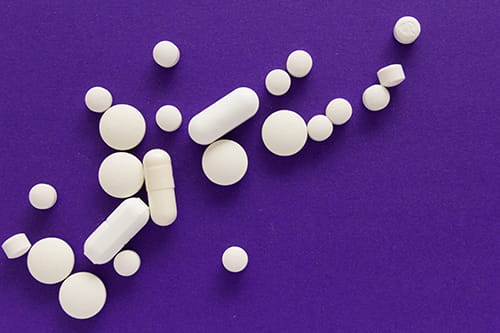
The illicit use of several non-prescribed benzodiazepines, a class of psychoactive drugs that have high abuse potential, has been trending up nationally. The standard approach for benzodiazepine detection often includes immunoassay screening of urine followed by confirmation with liquid chromatography-tandem mass spectrometry (LC-MS/MS).
Although literature sources have detailed the differences between immunoassay and LC-MS/MS assays, the assessing compliance can be challenging due to emerging psychoactive substances.
Hsuan-Chieh (Joyce) Liao, PhD, DABCC, FADLM, assistant professor in the department of laboratory medicine and pathology at the University of Washington, and colleagues have developed and validated an improved LC-MS/MS assay for benzodiazepine detection in urine. The new assay expands the current testing panel by adding five drugs to the previous panel of 10.
Liao will lead a roundtable discussion on using LC-MS/MS assays to confirm benzodiazepine use during the 2023 AACC Annual Scientific Meeting & Clinical Lab Expo in Anaheim, California. The roundtable, Take a Chill Pill: Benzodiazepine Analysis by an Improved LC-MS/MS Method Demonstrates Usage Patterns in Pacific Northwest Area, will discuss the epidemiology of commonly prescribed and non-prescribed benzodiazepines and the importance of using LC-MS/MS as a definitive confirmatory method.
In addition, the roundtable will highlight how to improve LC-MS/MS assays by expanding the testing panel, to detect drugs at lower concentrations, and to reduce turnaround time. The inclusion of novel drugs in the LC-MS/MS panel can also significantly reduce the incidence of immunoassay results interpreted as falsely positive.
Liao chose this topic after receiving questions from clinical teams about the prevalence of benzodiazepines in the Pacific Northwest and potential testing limitations.
“We recognized the importance of addressing these concerns, as they extend beyond laboratory directors and personnel familiar with screening and confirmatory assays,” she explains. “Additionally, clinicians often seek information about the factors contributing to false positive and false negative results and their clinical implications.”
Dr. Liao says the audience can expect to gain new insights into the challenges associated with transitioning between different platforms for benzodiazepine testing. Participants will share their experiences leveraging new instrumentation to improve assay performance, including enhanced sensitivity, faster turnaround time, and an expanded testing menu.
“Our study fills a significant gap in the field by addressing the limitations of previous LC-MS/MS assays, offering a model for complex LC-MS/MS assays in clinical laboratories,” she says. “The information will be valuable for laboratories seeking to expand their testing capabilities or transition to new instrumentation. Other colleagues can take our approaches as valuable lessons to facilitate the development and validation process.”
The roundtable will provide a comprehensive analysis of the epidemiology and usage patterns of common and emerging benzodiazepines in the Pacific Northwest, which has not been previously described in previous literature, s Liao explains. In addition, it will explore the causes of false positive and false negative results in the population.
“The knowledge will enable the audience and clinicians to interpret drug test results more accurately and make decisions regarding patient care,” she says. “Our study contributes novel insights to the field and has the potential to shape clinical management practices.”
At the end of this roundtable discussion, participants will be able to:
- Discuss the epidemiology of commonly prescribed benzodiazepines and emerging psychoactive substances.
- Describe the common caveats and differences between immunoassays and LC-MS/MS assays and the best practices for interpreting results.
- Evaluate several approaches to improve analysis by utilizing upgraded mass spectrometers to provide a more efficient and sensitive benzodiazepine detection.
Kimberly Scott is a freelance writer who lives in Lewes, Delaware. +Email: [email protected]
